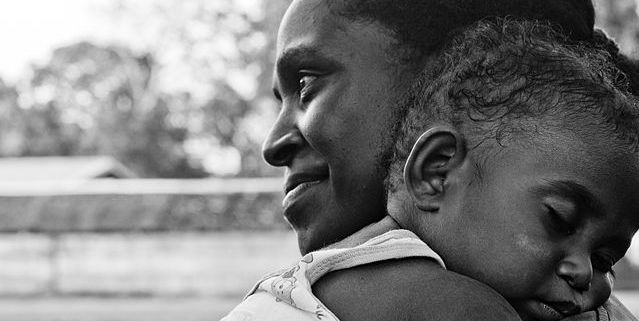
We Use Him by Tamara Madison
I stood by the bed
the day my father died,
holding his hand,
feeling the thin tremble
of his pulse
with my fingertips.
He was yellow,
breathing faintly
but he knew we were there
for his eyes flickered,
his head nodded,
he was waiting for us.
He seemed to look up
with his eyelids
and then fall, relieved,
into death’s cool hand.
Now we use him.
My son walks on his legs.
My sister throws his shadow
across the pool.
My brother wears
his burnished, bald crown.
His eyes regard me from the mirror,
and when I am especially angry
they flash like a switchblade,
foolish, but fierce,
and infinitely useful.
To My Daughter Who Was Never Born by Joe Cottonwood
I know you are a daughter because
we already had a boy, a girl, a boy.
It was a girl’s turn when two cells
in a womb chanced not to meet.
Now here’s a prom date waiting, corsage in hand,
at our door. Aren’t you ready yet? Our family,
never big on proms. Or dressing up.
Will you dance in blue jeans?
As parents, we made it hard.
You, only seven when your mom got cancer.
Not easy. I’m sorry for that.
In your fourteenth year, daughter,
we blew up. Yes, I came down hard on you.
Stealing a car is serious trouble.
But I promise not to dwell on that. Except to say
I secretly admire your gumption to steal
the candy of a billionaire’s spoiled brat,
to without lessons drive that Jag to San Diego
to free a dolphin who, it turned out, didn’t want
to leave his private tank where fish appeared
like magic twice a day precisely timed.
Some souls prefer order. Not you, not me, this family,
beyond the bedrock expectations: Get an education.
Be kind. Don’t steal cars to rescue dolphins.
Here, daughter, some fish.
Next year again I will lose you who I never had
as you burst from your tank swimming,
leaping the prow of this aging boat
with such grace, such hope,
your home the ageless sea.
Father Cigar by Chariklia Martalas
Wool waist coat
to keep away the whip of winter.
he inhales his Cuban.
His chair, his African home.
Caribbean tobacco leaves,
books of a different alphabet.
Greek letters on crisp paper
perfumed by smoke puffed into pages
as they turn.
Tranquility of old intellectuals
in a mad house. Ideas, cigars,
comfortable pondering in chairs.
Ash ribbons, pleasured wisps.
Mirage in smoke, memory in leaves.
I mentally photograph my father
with cigar, chair facing the grass.
Memory safe as upholstery.
Thin Fabric and an Empty Bowl by Wren Tuatha
I come to your country
in exile,
thin fabric and an empty bowl.
You come to my woods
in resignation,
bare trees and leaves into compost.
You wrap me against the leaving breezes
in long johns,
your old coat and trail hugging shoes.
Your uncle, my father,
is gone/crazy/homeless/missing/dead.
There’s no train of numbers on his forearm,
no Southern rope around his neck,
no chalk outline, no ransom call or suicide note.
But his place is just as vacant,
his absence incurable.
I hold out my bowl,
Oliver Twist.
Word soup: You look just like him.
We trade photographs
like baseball cards.
Into my bowl: The Missing Years.
When I offer my bowl to the waiting faces
my gratitude
spills out upon your feet.
Anyway by Tony Gloeggler
After we dropped dirt
on my father’s coffin
the long line of cars
drove back to the house.
We stood in circles,
took turns sitting
at the kitchen counter
and ate cold cuts.
My mother introduced me
to all her work friends
as her son, the poet.
One young woman knew
it wasn’t the time or place,
but always wondered why
people wrote poetry. I told her
I hoped to become rich
and famous, fall in and out
of love with multitudes of smart,
beautiful, fucked-up women.
She shook her head, said
maybe I should leave you alone
so you can go somewhere
and write. I didn’t follow
her, didn’t apologize for acting
like an asshole. I walked
upstairs, opened the door
to my old room, looked
for my bed and desk, my stacks
of albums. I wanted to blast
“Darkness on the Edge
of Town,” start writing
in a new notebook. I wanted
my father to pound his fist
on the door, yell turn
that goddamn shit down,
stick his head inside and ask
what are you doing anyway?
I wanted to hand him
my notebook, watch him
sit in his chair, turn on
the lamp and read, slowly,
his forefinger underlining
all the words, his lips
whispering every syllable.
First published in Rattle.
Friday Nights by Donna Hilbert
Friday nights, my father sat
in his green Naugahyde chair
smoking, drinking beer,
the red tip of his cigarette
tracing the pathway
from the ashtray to his lips.
My father sat in his chair
like a storm sits on the horizon,
gathering flash and clap
to slam across the prairie.
Friday nights, I flattened
thinner than a paper doll,
shrank smaller than a crayon,
knowing the tallest presence
takes the lightning.
If my father were a storm
building on the horizon,
if our house were on the prairie,
I could blow out the door,
down the concrete stairs
into the dark, damp cellar
to safety.
My Father Was Our Piano by Linda McCauley Freeman
He would sit in his great
armchair, the five of us pressing
his fingers, pushing
to be the one
to create a great
symphony—
the baritone thumb
the soprano pinkie.
Interlude by Ed Ahern
The small being sleeps on my chest.
My breathing sways plump arms.
He unable, me unwilling to rise and part.
We are never closer than this touching
that he will not remember
and I will not forget.
Unconcern nestled into gentle custody.
Neither knowing, or just now caring
about changes to come.
First published in Red Eft.

Tamara Madison is the author of the chapbook The Belly Remembers, and two full-length volumes of poetry, Wild Domestic and Moraine, all published by Pearl Editions. Her work has appeared in Chiron Review, Your Daily Poem, A Year of Being Here, Nerve Cowboy, the Writer’s Almanac and other publications. She is thrilled to have just retired from teaching English and French in a Los Angeles high school.
Joe Cottonwood is a semi-retired contractor who has spent most of his days in the building trades — carpenter, plumber, electrician. Nights, he writes. His most recent book is Foggy Dog: Poems of the Pacific Coast.
Chariklia Martalas is a Philosophy, Politics, English and History student at the University of Witswaterstrand in Johannesburg South Africa. Her passion lies in the intersection between Philosophy and Literature. She has been published in Odd Magazine.
Wren Tuatha (Califragile Editor). Wren’s poetry has appeared or is upcoming in The Cafe Review, Canary, Pirene’s Fountain, Peacock Journal, Coachella Review, Arsenic Lobster, Baltimore Review, Loch Raven Review, Clover, Lavender Review, Autumn Sky Poetry Daily, Poetry Pacific, and Bangalore Review. Wren and her partner, author/activist C.T. Lawrence Butler, herd skeptical goats on a mountain in California.
Tony Gloeggler is a life-long resident of New York City. His work has appeared in Rattle, The Raleigh Review, Chiron Review, New Ohio Review, Mudfish and Cultural Weekly. His full length books include One Wish Left (Pavement Saw press 2002) and The Last Lie (NYQ Books/2010). Until The Last Light Leaves (NYQ Books 2015) was a finalist in the 2016 Binghamton University Milt Kessler Poetry Book Award and focuses on his connection to an ex-girlfriend’s autistic son and thirty-five years of managing group homes for mentally challenged men in Brooklyn.
Donna Hilbert’s latest book is Gravity: New & Selected Poems, from Tebot Bach, 2018. She is a monthly contributor to the online journal, Verse-Virtual. Her work is widely anthologized, including Boomer Girls, A New Geography of Poets, Solace in So Many Words, The Widows’ Handbook, and most recently in The Poetry of Presence. She lives in Long Beach, California. More at http://www.donnahilbert.com
Linda McCauley Freeman has been widely published in literary journals and anthologies, including a Chinese translation of her work for an international journal. She recently won Grand Prize in Storiarts poetry contest honoring Maya Angelou, and her work was selected by the Arts Mid Hudson for inclusion in their Artists Respond to Poetry 2018 show. She was a three-time winner in the Talespinners Short Story contest judged by Michael Korda. She has an MFA in Writing and Literature from Bennington College and is the former poet-in-residence of the Putnam Arts Council. She and her husband are professional swing dance instructors in the Hudson Valley, NY (www.got2lindy.com).
Ed Ahern resumed writing after forty odd years in foreign intelligence and international sales. He’s had a hundred ninety poems and stories published so far, and three books. He works the other side of writing at Bewildering Stories, where he sits on the review board and manages a posse of five review editors.
Penguin photograph by Mtpaley. Seahorse photograph by Florin DUMITRESCU.












